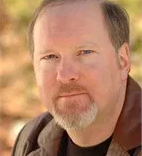Writing Productivity Tip #7—KNOW THE DIFFERENCE BETWEEN WRITING & EDITING
A series of eleven tips to help you get more time for writing, and to produce more writing when you do have time.
Write during the writing stage.
Edit during the editing stage.
Even though both activities involve a writer sitting at the keyboard staring at the screen, Writing and Editing are two very different processes. Each one requires a separate set of skills and talents; each uses a different part of your brain—the creative part and the analytical part. Learn to recognize the difference, and teach yourself to focus on only one process at a time.
Writing is the creative part of the process. When you’re writing—creating—let yourself be caught up in your story. (See Tip #4.) Get swept away by the characters, the situation, the events taking place as the plot unfolds. Don’t worry about the commas. Write the story first. Tell what happens, where it happens, and who it happens to, without getting hung up on fiddling with the previous paragraph, polishing one bit of dialogue, rearranging the sentences, researching subtle rules of usage, looking up historical dates, or finding the proper punctuation. No need to get every spelling or grammar guideline correct at this stage. You’ll have ample opportunity later.
Once the creative part is done, when your draft is written and the story told, then activate the more analytical part of your brain. Change hats and become an Editor instead of a Writer. Now is your opportunity to look at the sentence structure, cull out the redundant phrases, correct the grammar, add the appropriate punctuation if you didn’t get it right the first time, run your spell check. As I’ll describe in Tip #9, I have two totally separate methods for writing and editing. I do my initial drafts by dictation while I hike (thus, it’s not possible for me to worry about, or even see, cosmetic nuances of grammar or punctuation), and after I dictate the first draft, I do my editing on the computer.
You can always go back and make changes—always. If you allow self-doubt (or the lack of the “perfect” word or phrase) to keep you from moving on to the next sentence, then you’ll never finish that paragraph—which means you’ll never finish that chapter, which means you’ll never finish that novel.
Too many times I’ve seen writers derail their creative process by stopping the action to tweak a word or a sentence. If you write a few paragraphs, then go back and polish them, you destroy all the forward momentum you had. It’s like shifting gears again and again, forward, reverse, forward, reverse, and you could burn out your mental transmission.
Save the criticism for the second draft. That way you’ll actually finish writing and have something to polish. As far as I know, no one has ever published a “perfect,” but only half-completed, novel.
Nebula Awards Showcase 2011, to be released in April
This blog series is part of a lecture I’ll be presenting at the Superstars Writing Seminar in January 13–15 in Salt Lake City, a three-day intensive workshop focused on business and careers in writing. Other instructors include Brandon Sanderson, Sherrilyn Kenyon, David Farland, Rebecca Moesta, and Eric Flint. We hope to see you there.




You must be logged in to post a comment.